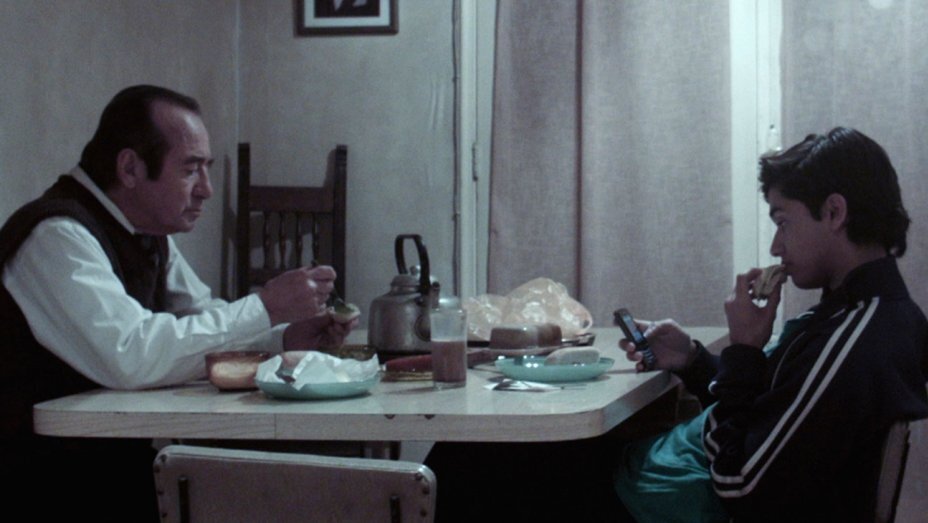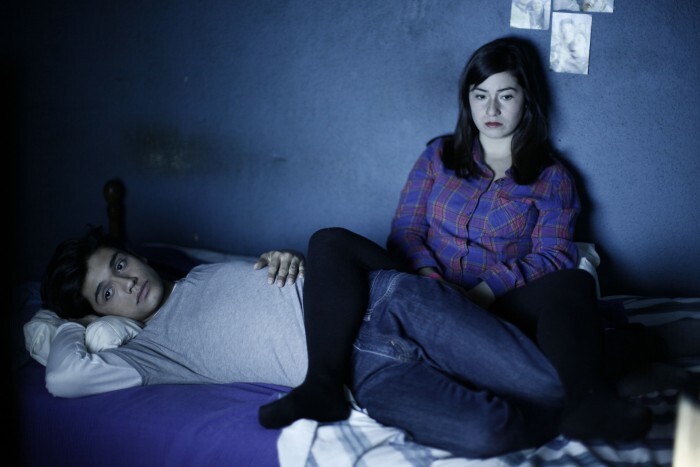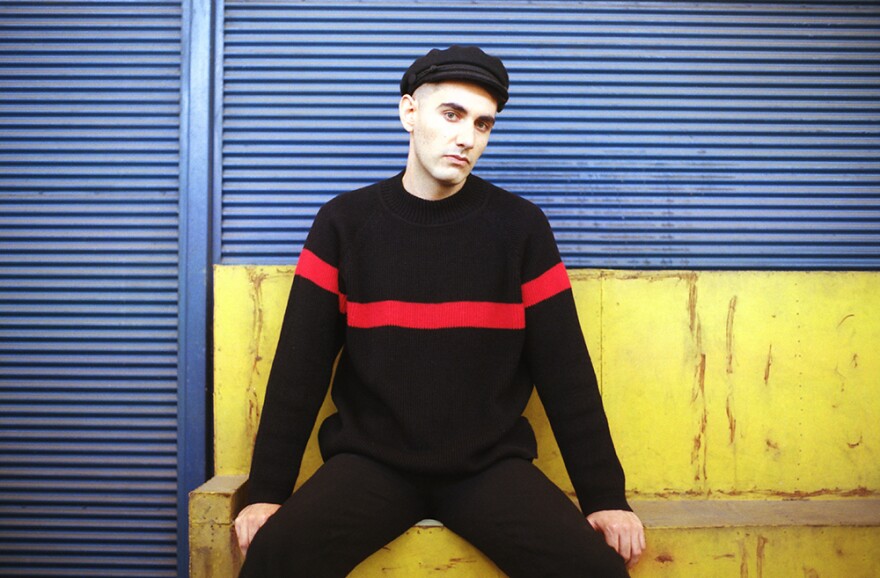Chilean musician Alex Anwandter has branched out to filmmaking to extend his message of tolerance for the LGBT community; Long Beach Opera makes another foray into experimentation with a work stripped from the headlines; Ticketmaster customers who were part of a class action suit are learning how they will benefit.
Chilean musician Alex Anwandter turns to film to advocate for LGBT rights
The sound of Chilean protest music is changing. In the 1960s and '70s, artists such as Violeta Parra and Victor Jara set their messages of political and social change to the sounds of Andean folk songs and ballads. But Alex Anwandter expresses his demands for change with electro-pop music.
Anwandter’s latest album, “Amiga,” has made him a spokesperson in Chile for LGBT and women’s rights. And now the 33-year-old artist is getting attention as a filmmaker. His debut as a director is called “Nunca Vas a Estar Solo” (“You’ll Never Be Alone”). It won a special jury prize for LGBT cinema earlier this year at the Berlin Film Festival. The film chronicles a brutal homophobic hate crime that was inspired by the real life slaying of a gay teenager in Chile.
When he stopped by The Frame, Anwandter spoke with senior producer Oscar Garza about the revolutionary spirit of his art, and he recounted the traumatizing event that shocked Chile’s youth culture and inspired his film.
Interview Highlights
I want to ask you about the origins of your film. "Nunca Vas a Estar Solo" is about a gay teenager in Chile who's killed because of his sexuality. Tell me a little more about that real life event.
A gay boy was incredibly, violently killed in a homophobic attack that actually lasted for hours. He was tortured, they broke his legs and carved swastikas on his stomach — really horrific stuff. The thing is, I happened to know that boy. He was a fan of my music. When I heard his name on the news I immediately identified him. I had been thinking about getting into film for a bit and when that happened, for me it was very clear. At the moment it was, This is it. This is the type of story I want to get into and the type of violence that I want to analyze. But at the same time I was very adamant on fictionalizing the story. It's actually rather loosely based on the case. It's a way that I get to say it's not about this one boy five years ago. It's something that happened this morning to another degree, this type of violence.
On an earlier album of yours called "Rebeldes," there's a song called "Como Puedes Vivir Contigo Mismo" ("How Can You Live With Yourself?"). That song was a favorite of the young victim, Daniel Zamudio. Had you written that before the incident?
Yeah. It's actually an album that came out a few months before the attack. The whole "Rebeldes" experience was very intertwined with Daniel Zamudio's murder. I actually met his family. His siblings encouraged me to keep on speaking on behalf of kids like their brother. It was a very strong experience and it became the motivating force behind "You'll Never Be Alone."

What legal protections exist for LGBT people in Chile?
That's a great question because, before Daniel's murder, we had no anti-discrimination law, and the law is now called the Zamudio law. So we were that far behind.
Why do you think it took an incident like this to galvanize the country and the government to put protections in place?
It usually works that way. You'll get some sort of martyr or horrific event and that will spark public opinion and collective thought on the issue for the first time. For instance, we are just beginning to discuss equal marriage. At the same time, [until recently], a woman that had been raped and had a dead baby inside of her could not get an abortion, even if she was going to die. It's absurd. It's like 18th Century stuff.
With your previous album and your newest one, "Amiga," you have become more outspoken and direct about your stance. Would you say that's true? And do artists in Chile generally feel free to get involved in political issues and make statements?
I think they do have the freedom, but they don't use that freedom. It's something that my generation of musicians have been rather criticized about. And criticized because Chile, as people may or may not know, has had a big student movement and a lot of social issues are rising. It's more like the generation that was born after the dictatorship — they started regaining a collective way of thinking that was forcefully eradicated during the dictatorship. I was personally inspired by this younger generation to reconnect with social issues.
This "younger" generation? You're not so old!
[Laughs] Well, but they are super young! They are much younger, like 15 or 16. They're in high school and they're out in the street facing police. It's quite impressive.

Your new album is titled "Amiga" — not amigo, but amiga. Was there some significance to using the feminine form of the word?
Well, yeah. It's a little open to interpretation. But it's a word play on the whole issue of gender that the album touches and the questions that it tries to ask, like, What does being a woman mean in a place like Chile? Or being a man. How are you supposed to behave?
And of course, those roles get mixed up with people who are trans. The profile of trans people has been raised tremendously in the last couple of years, but is that the case in Chile?
No, not at all.
But there is a song on your new album where you address this issue.
Yeah, the song you're referring to is called "Manifiesto," which obviously means manifesto. It's a very sincerely felt, queer anthem in which I put myself — we say in Chile, Ponerle el pecho a las balas, which means, Put your chest out for the bullets. It's me being very upfront about my sexuality and shouting it at the top of my lungs and being willing to suffer the consequences, which is still a rather risky act in Chile.
It's interesting that your music, which has very direct and personal messages, is certainly not in the tradition of folk music. It's dance music. When you started writing songs that had a social or political message, did you feel like you could do so in that style of music?
I felt an urge to find a new aesthetic of protest, if you will. A folk song like a seven-minute, only verses, no-chorus song is something that is very old now. I don't think it has an impact on people as it once had. I think pop culture has this one unifying criteria, which is being entertaining and that I thought was a very powerful tool — or even weapon — to discuss very serious issues. We've mentioned broken legs and horrific stuff. So boring people [by] discussing these issues, I see it as a luxury I can't afford.
How did you approach making your first feature film, which you also wrote?
My approach was kamikaze, really. That's the word to describe it. I don't think you can actually learn how to make a movie before you make a movie. As a writer/director, you have to supervise the most incredible amount of details and manage also the big vision. But it was a challenge that I welcomed at that stage in my life and it's been extremely gratifying.
You were at the Berlin Film Festival for the premiere. What was that like?
It was amazing. It's a massive festival and, well, I'm new to film, so I realized the weight it carried and the prestige. They sent a limo for me and that was all very impressive. [Laughs]
An opera that's ripped, and sung, from the headlines
What happens when you mix Donald Trump speeches, the 24-hour news cycle and South Indian singing? If you guessed opera — you’re right! If you did not guess opera, you’re not necessarily a heathen. That’s because those random elements have nothing to do with traditional opera. But tradition often goes by the wayside at Long Beach Opera.
The adventurous company's latest production is the media-savvy show, “The News.”
The composer, Jacob Ter Veldhuis from The Netherlands, has always been drawn to images and sound. Music and television were strong influences as he was growing up. But he recalls a low-tech memory that might be the true inspiration for this high-tech opera.
“When I was a little boy, there was no music in my life in the early '50s,” says the composer, who goes by the name Jacob TV. “Holland was recovering from the second world war. My mom told me this huge barrel organ stopped and played in the street, and I cried! I cried because of the beauty of the sound.”
The traveling barrel organs in his small Dutch hometown sparked an interest for Jacob TV to create art that people hear and watch.
“To make a barrel organ play, you have to create a book — that is a language of its own,” says the composer. “But here’s the beauty of it: you have pipes, but you have also drums. And puppets moving! It’s beautiful. So, for a four-year-old boy, there’s not only a lot to hear, there’s a lot to see in a world without television. The first television I saw was in ’59. I’m inspired by sound.”
Jacob TV is now a prolific and — some might say — renegade composer. Much like the beloved barrel organ shows of his youth, he’s known for combining unexpected visuals with unexpected sounds. The Whitney Museum in New York held a three-day music, dance and video festival showcasing his multimedia style back in 2007. It’s an aesthetic inspired by the bravery of rock 'n' roll and the frankness of the blues.
“In Holland, when you go to school you learn four languages: Dutch, but also German, French and English,” the composer recalls. “So we could understand what John Lee Hooker was talking about. Of course, we didn’t understand the problems here with segregation and everything. But we identified with these Afro-American men from your country who felt lonely. Also, young people can identify with the subjects that John Lee Hooker and Muddy Waters were talking about. It was fascinating! We had never heard anything like that!”
Fast forward to present-day Southern California where Long Beach Opera company is presenting the west coast premiere of Jacob TV’s latest audio-visual feast in which the subjects are the news media and the newsmakers. To create the opera, Jacob TV pulled video clips from many mainstream news services, both on-air and online. Think CNN, FOX, CSPAN, YouTube — you name it. He then edited the clips as if the audio and video were just one more musical instruments\ to draw from in his composer’s toolkit.
Audience members will hear a live nine-piece band play while a huge screen broadcasts the edited clips. Meanwhile, two television news anchors sing the news of our day.
“It’s urgent that we find a way to be together as people instead of being separate” says singer Maeve Höglund. She sings real words from real newsmakers in the show, and now the songs are getting her to re-think some of her own beliefs, including personal ideas ranging from presidential politics, women’s right and even gun control.
“I’ve never been a gun person,” Höglund says. “But I come from a long line of gun lovers — full of pride. It’s really pushed the boundary for me about guns in this country.”
Tough topics are balanced out by beautiful ballads in the show. One of Höglund's favorite songs is called “La Pace.”
“La pace in Italian is 'peace,'" Höglund says. "The song is really saying it’s time we find a way to be peaceful with each other. It really is the bloodstream of this piece in terms of all the different topics we cover. A lot of that is being challenged right now.”
Co-star Loire Cotler does not consider herself an opera singer. She instead calls herself a "rhythm vocalist."
“For me, rhythm is our most intrinsic connection to one another," Cotler says. "How is the news delivered to us? What is the rhythm of these words and these catch phrases? What is the cadence? What’s going on there? I’m listening to that and [giving] this interpretation — using my rhythm singing to express it, but without words sometime. It gives another dimension that says, Hey, wait a second, let’s pause. Let’s stop. Let’s listen to something we’ve heard over and over again. But let’s see if we can hear it differently.”
It’s a media-literacy goal that both singers say they share with the opera’s director, Tanya Kane-Parry.
”We’re battling our own technology and we don't know how to do it,” Kane-Parry says. “We don’t have a script. We have no tools that have told us how to do it. And we are overwhelmed. And I hope this journey, through this production, will help people seek out more ways to navigate that daily experience.”
“The News” will be performed June 25 at 4 p.m. and June 26 at 2:30 p.m. at The Broad Stage in Santa Monica.
Everything you need to know about those free tickets on Ticketmaster (UPDATED)
UPDATE: Ticketmaster has released the list of concerts for which customers can use vouchers that were issued as part of the class-action lawsuit against the ticket company. The concerts are all at facilities run by Live Nation, which owns Ticketmaster. There are no Live Nation venues in Los Angeles County. Eligible concerts at Irvine Meadows include: Rascal Flatts (July 9); Duran Duran (July 30); and Snoop Dogg with Wiz Khalifa (Aug. 25).
ORIGINAL STORY: This past weekend was a kind of Christmas morning for Ticketmaster users.
The ticket-selling behemoth distributed millions of free and discounted ticket vouchers to its customers as part of a multi-million class-action settlement. But the settlement comes with a few strings attached.
For one, the site specifies that the ticket vouchers will only be usable for "eligible events." This means it is up to Ticketmaster and Live Nation to decide which shows will accept the vouchers. It's still to early to tell whether beneficiaries of the settlement will have issues getting tickets to shows they want to see.
Henry Grabar is a staff writer at Slate’s Moneybox site, and he joined us on the Frame to talk about the long, drawn-out history of these coupons, the hoops you'll have to jump through to use them, and why it might actually be a good thing for people to forget about them.
Interview Highlights
On the origin of these Ticketmaster coupons:
These vouchers are the result of a giant class-action settlement that Ticketmaster agreed to last year, and it's actually been in court since 2003, which is why some people will find that they have 18 free concert tickets in their account. This covers a period from 1999 to 2013, so even if you bought tickets 15 years ago, you could be getting compensation.
Ticketmaster had said that they were charging fees for delivery and order processing, but in reality those fees were just going towards the company's profits. The result of the suit, basically, is that Ticketmaster doesn't mislabel those fees as "order processing." They still charge the fees, but now they just take the money and add it to the bottom line.
On the various coupons and discounts people can get:
There are a few discount codes which give a very small amount — two dollars, five dollars — off a future purchase. And then you have these ticket codes, which give you free concerts to venues at Live Nation, which bought Ticketmaster in 2009.
Those are the big thing that's been made available in this settlement, but we don't know what the free ticket codes will be good for yet. In fact, they could become an even bigger part of the settlement. Ticketmaster is obligated to pay out a certain amount of money each year, so if we don't use the discount codes, we could be getting even more ticket codes.
On Ticketmaster's efforts to prevent any future class-action lawsuits:
Ticketmaster has changed their Terms and Services such that you waive your right to participate in a class-action lawsuit like this. So moving forward, all of our grievances will be turned into individual complaints. And if you've been overcharged five dollars on a ticket purchase, you're not going to hire a lawyer and sue Ticketmaster over five dollars.
That's the purpose of a class-action lawsuit — we're able to come together over these millions and millions of tiny charges, but that's not a right we have any more. So enjoy those discount codes while they last!




